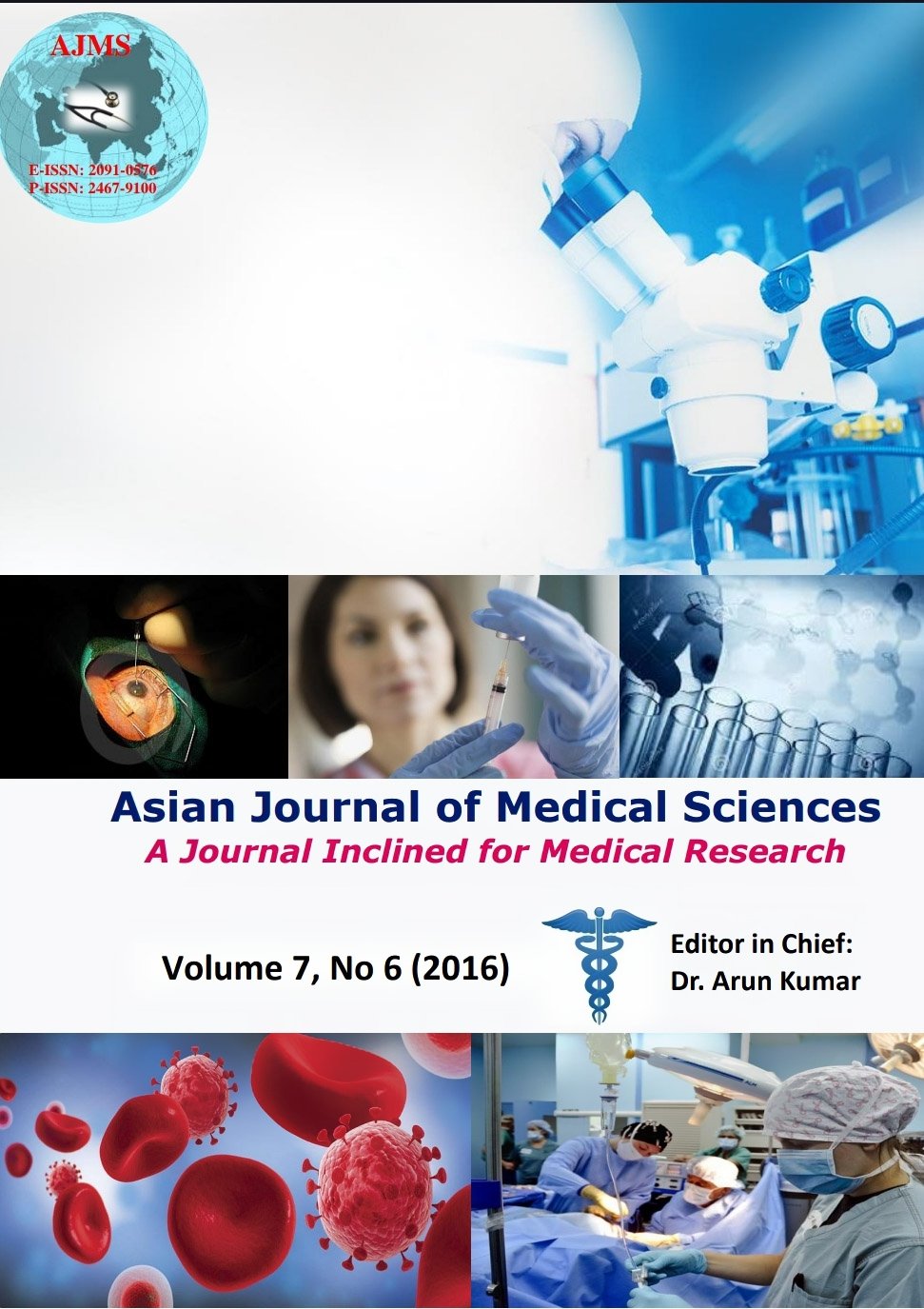Evaluation of Serum 25 Hydroxy Vitamin D level in acute myocardial infarction patients in a tertiary care hospital
Keywords:
Vitamin D, Acute myocardial infarction, Diabetes, Hypertension, ObesityAbstract
Background: Coronary artery disease is the leading cause of death worldwide with acute myocardial infarction being the most severe manifestation. Recent evidences have linked vitamin D in the pathogenesis of the coronary risk factors like diabetes, hypertension, obesity and smoking.
Aims and Objectives: The present study was undertaken with an aim to look for the vitamin D status of the AMI patients and its relation if any with the above mentioned risk factors.
Material and Methods: One hundred acute myocardial infarction patients along with one hundred age and sex matched healthy controls were included in the study and the serum 25 (OH) D was estimated in both the groups.
Results: Serum 25 (OH) Vit D level was found to be lower in cases (19.6±6.85 ng/ml) than in controls (27.5±6.23 ng/ml) (p<0.001).The decreased vitamin D level was associated with the incidence of AMI after adjusting for other risk factors. The serum vitamin D level was significantly decreased in the patients having risk factors among the AMI group.
Conclusion: The present study showed a significantly low serum vitamin D in AMI patients . Given the therapeutic safety and inexpensiveness of vitamin D, further studies may be undertaken to look for the effect of its supplementation on coronary artery disease.
Asian Journal of Medical Sciences Vol.7(6) 2016 11-15
Downloads
Downloads
Published
How to Cite
Issue
Section
License
Authors who publish with this journal agree to the following terms:
- The journal holds copyright and publishes the work under a Creative Commons CC-BY-NC license that permits use, distribution and reprduction in any medium, provided the original work is properly cited and is not used for commercial purposes. The journal should be recognised as the original publisher of this work.
- Authors are able to enter into separate, additional contractual arrangements for the non-exclusive distribution of the journal's published version of the work (e.g., post it to an institutional repository or publish it in a book), with an acknowledgement of its initial publication in this journal.
- Authors are permitted and encouraged to post their work online (e.g., in institutional repositories or on their website) prior to and during the submission process, as it can lead to productive exchanges, as well as earlier and greater citation of published work (See The Effect of Open Access).




